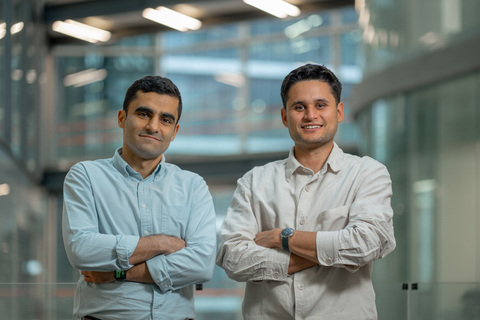LONDON– Mytos, an innovative leader in automated cell manufacturing, announced today it has closed $19M in Series A financing led by Buckley Ventures, with participation from IQ Capital and Wing VC.
The funding will accelerate the manufacturing and distribution of Mytos’ automated cell production system to more biotech and pharma companies to meet growing demand. The company’s platform is already in use by a number of life sciences companies globally. Mytos also has plans to expand its sales and development team.
Founded in 2018, Mytos has developed a revolutionary system that fully automates the intricate and pivotal process of human cell production—an essential part of the drug development process. A critical bottleneck in biotech is the manual production of human cells, which slows down development of every new drug. Whether at a large pharma or early-stage startup, scientists do not have a viable solution to the tedious process of manually growing human cells – which consumes valuable hours each day, delaying the speed of drug development.
The inconsistencies in hand-grown cell quality also introduce noise into crucial data, while contaminations can frequently delay experiments by weeks. Mytos’ automated cell production system streamlines this intricate process, seamlessly integrating tasks such as imaging, passaging, and media replenishment into an automated workflow. Mytos’ ability to automate cell production frees up scientists’ time, decreases the risk for human error and contamination, and improves the yield of high-quality cells.
“The most tedious process in biotech is growing human cells by hand. Every scientist needs to spend hours a day growing cells and coming in on weekends to look after them,” said Ali Afshar, CEO & Co-Founder, Mytos. “With our automated system, our customers love the fact that it’s a simple setup, and they can check how their cells are growing on the weekends from their phone instead of going into the lab. Usually it takes months for an automated system to replicate a manual process, but our system is a same-day setup. This new funding will allow us to accelerate our roll-out to reach more customers, speed up their development of life-saving cures, and expand into cell therapy manufacturing.”
“Traditional attempts at automating this process using robotic arms have fallen short in practice, due to low precision, sterilization challenges, and limitations growing more complex cells,” said Wali Malik, Senior Director, Lab Automation, Tessera Therapeutics. “Mytos’ unique approach to cell manufacturing is simple and easy to set up. It combines intricate fluidics, high-performance microscopy, and temperature control, to ensure precise and efficient hands-free cell culture where scientists can monitor virtually 7 days a week on their mobile devices, without having to go into the labs on weekends to check on the cells.”
The Mytos automated cell culture system can produce a range of intricate cell types from brain to heart cells within a matter of weeks. Beginning with stem cells (iPSCs), the system can efficiently manufacture heart cells that spontaneously start beating after 12 days. By automating the entire cell manufacturing process, Mytos ensures consistent, high-quality cell production and yield, while allowing remote monitoring of cell quality via digital data capture accessible on a smartphone or digital device.
“Mytos is revolutionizing cell manufacturing, providing a simple solution that pharma and biotech companies can easily integrate into their research workflow,” said Jonathan Choi, Partner, Buckley Ventures. “They’ve assembled a world-class team of engineers and scientists to create a paradigm shift in how drugs will be tested. They also have plans to expand into cell therapy manufacturing. Mytos has developed a system that totally automates mammalian cell culture – one of the most painful but important processes in biology. We believe they can revolutionize an entire industry.”


